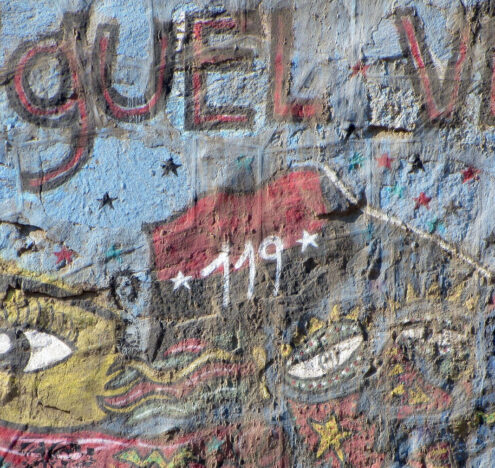The use of disruptive technologies presents a new set of challenges for governments around the world. Big data and its misapplication in political election campaigns has changed our understanding of free and fair elections in recent years, contributing to a dangerous trend of worldwide democratic backsliding. People’s use of social media as a news source and tech companies’ use of algorithms to ensure that consumers see what they want has made the relationship between technology and elections much more complex. Cambridge Analytica was the first widely known intervention in elections, where the personal data of thousands of American voters was used to target their perceptions, but this kind of interference keeps happening. Campaigns during Brexit, as well as the elections of Brazil and the Phillippines, are good examples. And now, Turkey appears to be the latest playground for electoral misinformation and fake news.
Turkey has undergone a radical transformation in terms of declining human rights and rule of law since 2003. The country is now rated as “not free” with respect to its political rights and civil liberties. In 2022, Freedom on the Net also rated Turkey “not free” with an internet freedom score of 32 out of 100. Perhaps not surprisingly, then, it is also constantly dropping in the Corruption Perception Index, with a current score of 36 and ranking 101st in 180 countries. According to the Election Vulnerability Index, which looks at indicators in the digital age for disruptive effects and assesses the risk of violations and digital interference ahead of significant elections around the world, Turkey ranks as low as 33, with 100 representing the least vulnerability in terms of election integrity. Amidst all of this is the challenge of misinformation and fake news.
Turkey held its general elections on Sunday, May 14, 2023, and the lead-up appeared to be a new playground for testing the abuse of digital forces. The country has experienced intense political polarization during the last 21-year rule. This election has been defined by many as among the most important elections globally in 2023. The opposition is presenting a strong front against the increasingly restrictive regime, which follows the upset of the 2019 municipal elections when, for the first time in over a decade, the ruling Justice and Development Party (AKP) lost control of Ankara, Istanbul, and other major cities, showing that authoritarianism can be defeated, despite an uneven playing field.
Is It A Bot Or A Real Person?
While election irregularities in Turkey are more often related to issues like the detention of opposition party representatives or the use of public resources in favor of the governing party, manipulation of social media through bot movements has been a dominant feature of this election. Click farms, where thousands of machines are lined up to generate fake engagement, have been used frequently, with accounts endlessly generating new faces of people who do not exist or impersonating those profiles that do.
Even though Twitter shut down 7,340 accounts in Turkey in 2020, claiming that the accounts could be attributed to “state-linked information operations,” these accounts can be easily replaced by new bots. Twitter’s changed security protocols have also made it harder to detect fake accounts. For example, the famous blue check is now a paid subscription and has been removed from legacy accounts, making it harder to know if the account belongs to a bot or a real person.
Twitter’s new lack of blue checks allows bad actors to effectively spread misleading or fake messages and have them read. It also allows these actors to artificially push up a chosen keyword rating in Twitter’s trend algorithms. Another important issue is that bad actors already create compelling content that is very difficult to distinguish from genuine tweets by using artificial intelligence large language model tools like Google Bard and ChatGPT as well as visual generators like DALL-E or Dream Studio.
Twitter itself acknowledges that the level of fake or abusive accounts and content on its platform is rising. The social media giant reports that in the first six months of 2022, it has seen a 29% increase in content that violates Twitter’s rules when compared to the last six months of 2021. The first half of 2022 has also seen a 28% increase in those accounts that had to be suspended for misusing the platform. This shows that Twitter itself is fighting an uphill battle to keep up with the misuse of the platform.
Turkey, for its part, is the country with the highest exposure to fake news according to EPFL — and the current election landscape has shown this to be true a number of times. Presidential candidate Muharrem İnce pulled out of the race partly due to a fake video tape. And even Erdoğan shared fake videos linking his main rival Kemal Kılıçdaroğlu to the militant Kurdish organization PKK.
Attack Of The Bots
The use of artificial intelligence for diverting public opinion in elections is a relatively new but effective tool. This year, at least 20% of trending topics on Turkish Twitter have been manipulated by the intervention of bots, and so can hardly be considered reliable.
Nevertheless, what is new in this election is that fake news has been generated and distributed by suspicious bot movement, i.e., thousands of Russian, Hungarian, and Brazilian-speaking Twitter accounts, which in turn have influenced Twitter trends. The Russian interference in the 2016 US presidential elections serves as an example that may be easily followed by others who wish to unfairly influence elections by using bots on social media platforms. Sources from the main opposition, the Republican People’s Party (CHP), claim that there is Russian influence behind all digital manipulation, and some accounts with more than 10,000 followers have been bought to manipulate the Turkish people through social media. While Russia continues to support Erdoğan, Russian officials deny any of these allegations. CHP leader Kılıçdaroğlu, however, has openly accused Russian officials of intervening in Turkish elections.
Democracies with free and fair elections are already declining around the world. This is partly because big tech is abused by bad actors and autocratic foreign interests to influence election outcomes. The internet, once seen as a key source of open information, is now functioning as a stage for dark and deep manipulations bolstered by algorithms and weak security systems. While technology still holds great promise for us all, when algorithmic tools are used to mislead and confuse people — generating misinformation — it can damage a broader society in unspeakable ways.
AI tools must be held accountable and cannot be left unregulated. In order to reduce the abuse of machine learning in social and political contexts, stricter legal framework needs to be adopted. And in the age of the algorithm, it is clear that ethics must be inherent in the process of the design of these tools from the beginning.
Watching the lead-up to Turkey’s elections has made it clear that it is time to talk about ethical and responsible AI, effective regulations for big tech, civil society inclusion, and stronger security systems. Otherwise, the disruptive use of technology, which is now an active part of information warfare, has the potential to create enormous concern for democracy in the world.





















